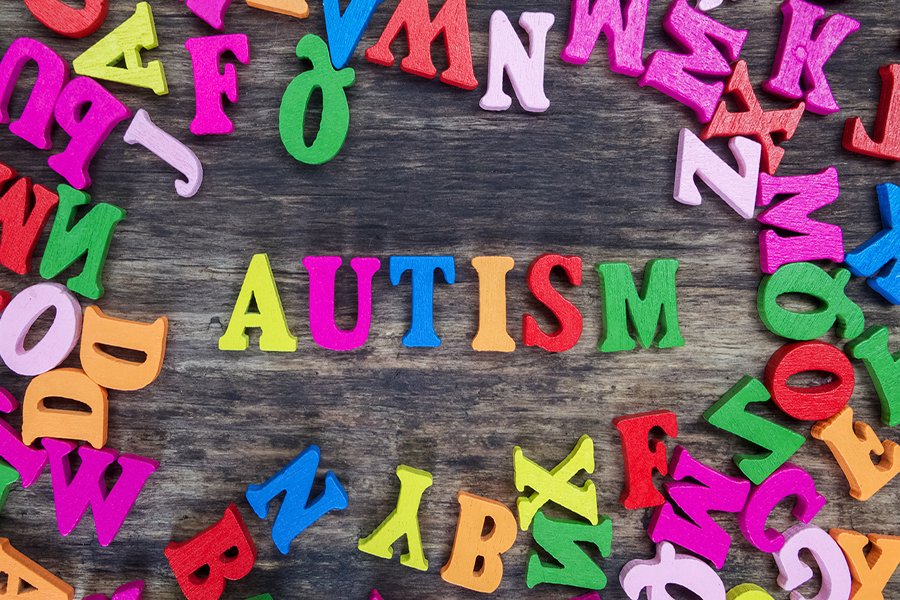 Autism Myths -True or False?"
class="bg-img"
fetchpriority="high"
loading="eager"
decoding="async">
Autism Myths -True or False?"
class="bg-img"
fetchpriority="high"
loading="eager"
decoding="async">
Written By: Care New England on April 22, 2019
Let's take a look at what Viren D’Sa, MD, and Ana Catarina Garnecho, MD, New England Pediatric Institute of Neurodevelopment (NEPIN) say about the facts on common Autism myths. Learn more about our services at the Center for Children and Families at Women & Infants Hospital.
TRUTH: There is no doubt the number of children diagnosed with autism spectrum disorder has risen over the past 10 years. However, characterizing it as an epidemic is inaccurate and gives the impression of a clear cause for the increasing numbers. While a cause for the occurrence of autism is yet to be identified, we are seeing greater awareness of the condition. This has led to children being evaluated in larger numbers due to concerns raised by various caregivers and educators who spend a significant amount of time with them.
When interpreting some of the more recent reports of the prevalence of autism, one must consider the methods used in arriving at these numbers. For example, extracting numbers from special education records of school departments can misrepresent the true numbers of children diagnosed with the disorder. It doesn’t take away from the fact that there is increasing awareness of autism spectrum disorder, resulting in more children being evaluated, collectively resulting in higher numbers of children being diagnosed.
TRUTH: The discussion about the role of vaccines in Autism Spectrum Disorders began with the introduction of concerns related to the presence of mercury as a preservative in the measles, mumps, and rubella (MMR) vaccine. Since then, while the use of mercury as a preservative has been discontinued in vaccines, the number of children being diagnosed with the disorder continues to be significant. The components of various vaccines have also been looked at in population studies both in the United States and other developed countries. A few years ago, the researchers who initially associated vaccines and autism retracted their claims after concerns were raised about their study, including its funding, lack of reproducible results, and the methods by which information was obtained. While numerous studies have not revealed a cause-and-effect relationship between vaccines and ASD, studies continue to look for causes. To date, no other component has been found to have a causative effect on the diagnosis of Autism Spectrum Disorder. At this time, among the factors possibly associated with the development of autism, genetics continue to be a leading candidate, though much work is required in pin-pointing this further.
TRUTH: Like their peers, children with an Autism Spectrum Disorder can demonstrate great variability in their cognitive profiles, ranging from intellectual disability to superior intellect. They can also have skills and talents in a particular area that may be out of proportion to their other skills or overall developmental profile. These skills can include a special talent in art or music but can also be skills in memorizing facts, visual symbols or long passages, etc. While these talents do not always correlate with the child’s intellectual ability, such tendencies, if seen, can give the casual observer the impression of superior cognitive ability and intelligence. Such children may be of superior ability in that particular skill, but in other areas of development – communication, socialization, relationships, etc. – they often continue to have difficulties consistent with their ASD diagnosis.
TRUTH: Like all children, regardless of their developmental status, children with Autism Spectrum Disorder also experience and feel emotions. They experience happiness, sadness, anxiety, fear, anger, apprehension, excitement, etc. The difference may be in how they express their emotions and their understanding of those emotions in others. Depending on their ability to communicate, they might not always express these emotions like their typically developing peers and this raises concerns about their lack of feeling or emotion. Their reactions can be unexpected (i.e. laughing/smiling during a sad moment), disproportionate to the trigger (i.e. anger with mild frustration), or exaggerated (extreme excitement over a small toy). Despite these differences in emotional expression, children with Autism Spectrum Disorder experience a variety of emotions that should be acknowledged and accepted like the emotions of their typically developing peers.
Contact us for more information or to schedule an appointment.
Disclaimer: The content in this blog is for informational and educational purposes only and should not serve as medical advice, consultation, or diagnosis. If you have a medical concern, please consult your healthcare provider or seek immediate medical treatment.
Copyright © 2025 Care New England Health System